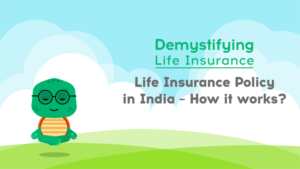-

Reasons to buy term insurance before you turn 30
When it comes to life insurance, you cannot ignore the all-too-relevant term insurance plan. The plan provides unmatched financial security…
-

Types of life insurance
Variety is the spice of life, isn’t it? Then should life insurance plans be of the same type? Wouldn’t you…
-

Health insurance not an option anymore but a necessity!
Have you crossed your 20s and haven’t bought a health insurance yet while planning your saving all these years? If…
-

5 technologies that are transforming healthcare
Together, technology and healthcare share an interesting past. Technological breakthroughs have almost always resulted in simultaneous breakthroughs in the medical…
-

Play safe this Monsoon with the umbrella of health insurance
Don’t you just love the monsoons – the heavy clouds that bring respite from the scorching heat, the cool showers…
-

How Does Life Insurance Policy Work in India – Guide
“What is Life Insurance? How does it work?” If these are the questions on your mind about life insurance, worry…
-

Common terms in life insurance policies
Do all Life Insurance terms seem Greek to you? Well, let our Turtle help you understand these terms in a…
-

Reasons to buy a life insurance now
Do you think that you’re too young to take a life insurance plan? But do you know that there are…
-

Why is term insurance an absolute buy?
What is the first instrument which comes to your mind when you want to create your financial portfolio? Is it…


